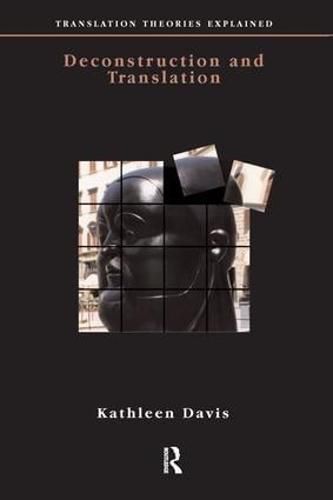Readings Newsletter
Become a Readings Member to make your shopping experience even easier.
Sign in or sign up for free!
You’re not far away from qualifying for FREE standard shipping within Australia
You’ve qualified for FREE standard shipping within Australia
The cart is loading…






Deconstruction and Translation explains ways in which many practical and theoretical problems of translation can be rethought in the light of insights from the French philosopher Jacques Derrida. If there is no one origin, no transcendent meaning, and thus no stable source text, we can no longer talk of translation as meaning transfer or as passive reproduction. Kathleen Davis instead refers to the translator’s freedom and individual responsibility. Her survey of this complex field begins from an analysis of the proper name as a model for the problem of signification and explains revised concepts of limits, singularity, generality, definitions of text, writing, iterability, meaning and intention. The implications for translation theory are then elaborated, complicating the desire for translatability and incorporating sharp critique of linguistic and communicative approaches to translation. The practical import of this approach is shown in analyses of the ways Derrida has been translated into English. In all, the text offers orientation and guidance through some of the most conceptually demanding and rewarding fields of contemporary translation theory.
$9.00 standard shipping within Australia
FREE standard shipping within Australia for orders over $100.00
Express & International shipping calculated at checkout
Deconstruction and Translation explains ways in which many practical and theoretical problems of translation can be rethought in the light of insights from the French philosopher Jacques Derrida. If there is no one origin, no transcendent meaning, and thus no stable source text, we can no longer talk of translation as meaning transfer or as passive reproduction. Kathleen Davis instead refers to the translator’s freedom and individual responsibility. Her survey of this complex field begins from an analysis of the proper name as a model for the problem of signification and explains revised concepts of limits, singularity, generality, definitions of text, writing, iterability, meaning and intention. The implications for translation theory are then elaborated, complicating the desire for translatability and incorporating sharp critique of linguistic and communicative approaches to translation. The practical import of this approach is shown in analyses of the ways Derrida has been translated into English. In all, the text offers orientation and guidance through some of the most conceptually demanding and rewarding fields of contemporary translation theory.